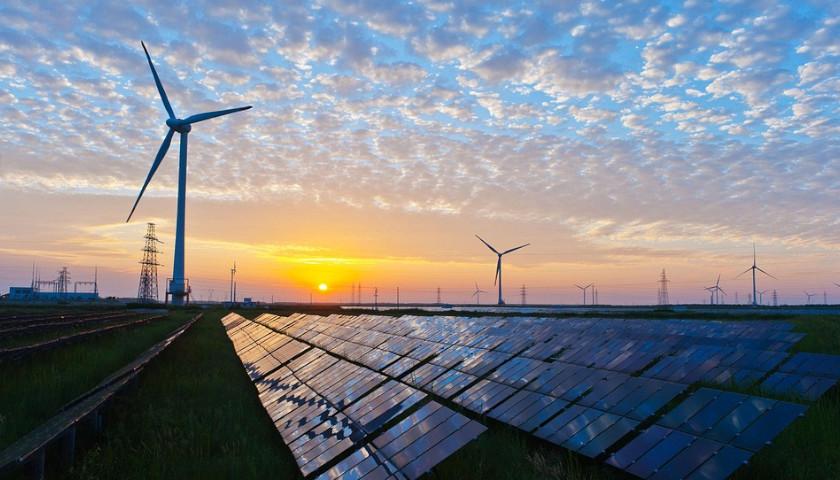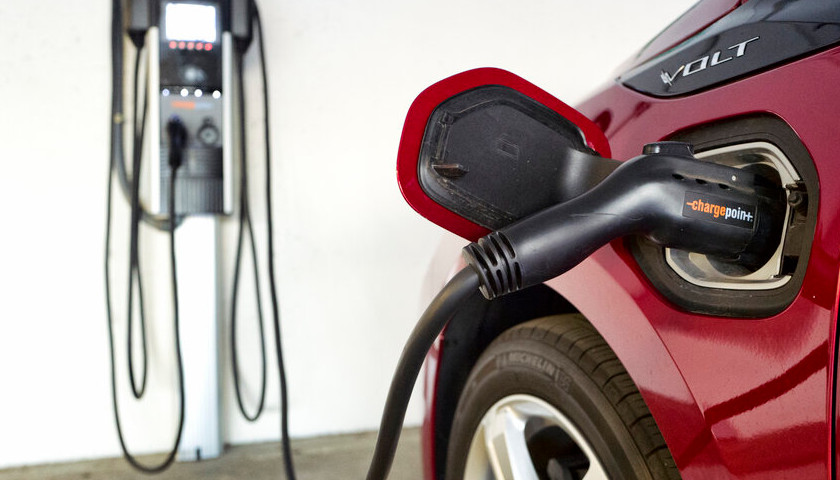The U.S. House of Representatives passed legislation that would prohibit electric-vehicle batteries from Gotion and several other foreign companies from being used by the U.S. Department of Homeland Security.
Read MoreTag: batteries
Commentary: The Difficult Truths About Unrenewable ‘Renewables’
Today in America, there are obvious disconnects between observable reality and the narratives we get from the corporate special interests controlling the news we consume, along with politicians who are supposedly elected to represent us.
This is nothing new. Elites have defined America’s destiny throughout its history. The only difference today is that the internet, despite ongoing crackdowns, still manages to deliver an unprecedented volume of contrarian perspectives to millions of people. We aren’t any freer or less manipulated today than we ever were, we’re just more aware of it.
Read MoreMichigan Gives $577,400 in Grants for Electric Vehicle Programs
Six private companies will share $577,400 of Michigan funding to expand electric vehicle infrastructure, promote EV adoption, and enhance electric bicycle sharing and charging.
Lt. Gov. Garlin Gilchrist II announced Thursday a round of funding that will launch additional EV charging stations, increase access to EVs and expand adoption of EVs with Michigan drivers. More than $577,400 will be appropriated to six mobility projects from the Michigan Mobility Funding Platform, which was created through a partnership between the Michigan Economic Development Corporation, the Michigan Department of Transportation, and the Office of Future Mobility and Electrification.
Read MoreStudy: Recycling and Storing EV Batteries Will Be a ‘Huge Issue’
Gov. Gretchen Whitmer wants to spend $60 million on electric vehicles (EV), including electrifying the state’s fleet. However, the production of EVs is beset by a supply chain riddled with shortages in addition to environmental concerns.
Whitmer’s proposed 2023 budget aims to spend $50 million to subsidize new EV sales or a $500 rebate for at-home charging equipment for new or used EVs. Another $10 million would start converting Michigan’s roughly 13,637-vehicle fleet to EV.
Read MoreCommentary: More Mining at Home Is a Win-Win for Environment and Defense
This week, the U.S. Senate Energy Committee is examining the feasibility of building domestic supply chains for crucial minerals. The U.S. is currently completely dependent on imports of rare earth elements (REEs) that will determine whether the Biden Administration’s environmental and electrification goals are met. REEs also are used in essential defense systems like fighter jet engines, missile guidance and defense systems, and secure communication networks. Regardless if you are a champion of environmental protection or a strong national defense, bringing crucial supply chains to the U.S. will result in less emissions, higher environmental standards, and more control over materials that are the key to a greener and more secure future.
Green technology that underpins solar panels, wind turbines, and the lithium-ion batteries that store energy all require REEs. Neodymium, cobalt, copper, and lithium are all used in electrical vehicles, and those minerals are just a few of the 17 key minerals that the U.S. is completely dependent on imports for, and they’re a fraction of 29 other minerals that the U.S. imports half its domestic needs.
Read MoreDemand for Electric Cars Fuel Detroit Manufacturers to Invest in Car Charging Stations
As the automotive industry fills the demand for electric cars, the country – and the world – will need thousands more plug-in charging stations for vehicles powered by batteries alone. And because they’re being asked to invest before that demand arrives, automakers and charging companies are struggling to raise the numbers.
Currently electric vehicles make up only about 1.3% of total new vehicle sales in the U.S., according to the Edmunds.com auto site. Electrics are much bigger in other countries, accounting for 2.6% of global new vehicle sales last year, the International Energy Agency says. There are now 26,000 electric vehicle charging stations open to the public in the U.S., with more than 84,000 plugs.
Read More





